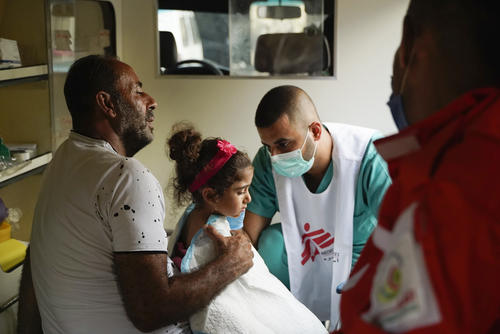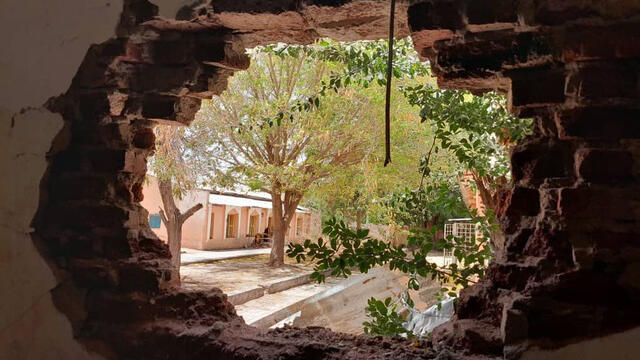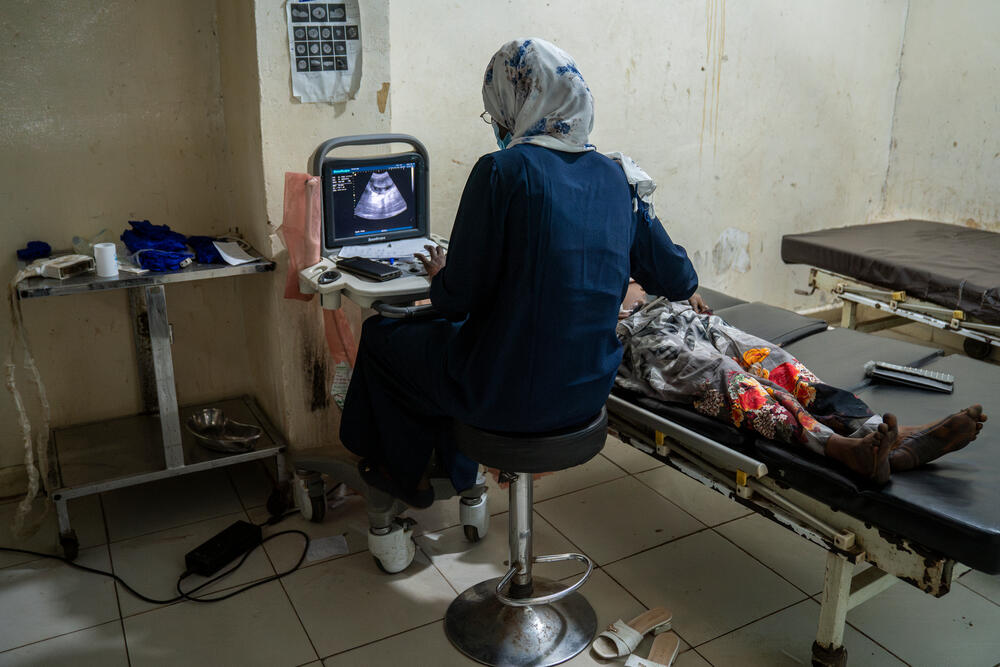Sudan: Five ways MSF brought healthcare back to a war-damaged hospital
When war reached Nyala in Sudan, the city's hospital was so badly damaged that it was left barely functional. But with medical needs rising, this crucial healthcare facility also provided a life-line
Dr Jennifer Hulse shares how the Médecins Sans Frontières / Doctors Without Borders (MSF) team worked fast to bring back life-saving medical care to a community rocked by war.
1. Acting fast
When I first arrived at Nyala Teaching Hospital, MSF had only recently started working there. Before the war patients from across the region had travelled to the hospital to receive specialist care. Now the MSF logistics team was working hard just to bring back basic infrastructure like electricity generators, running water and sanitation.
It wasn’t just essential infrastructure that was missing. At the peak of the violence, anyone who could do so had left the city, trying to get their families to safety. Most of the team who remained were junior doctors and nursing staff, trying to keep some services going in the face of incredible challenges. It was my job to support them to provide the most effective care possible in this new context.
Every department in the hospital needed support, but with limited resources available we had to focus on where we had the most potential to save lives: paediatrics, maternity care, and emergency medicine.
Medical care where it's needed most
Help us care for people caught in the world's worst healthcare crises.

2. Getting supplies across the desert
Many hospitals in Darfur have been looted, and with neither the UN nor the World Health Organization stepping up, it’s almost impossible for them to get new stocks of vital medical supplies.
In Nyala, hospital staff were scouring local pharmacies across the city, searching for anywhere which still had basic items like spinal needles to do emergency C-sections. When they found them, the scarcity meant some items had increased in price by five times what they had cost before the conflict.
There is a long, difficult route through the desert in neighbouring Chad. It’s less a road than a sandy track, but our supply team were determined.
Just before I finished my assignment, we got a big order through, and after months of careful rationing trucks full of vital supplies arrived at last.
"We ran around the hospital, assessing how many patients were currently on oxygen, whether the flow could safely be reduced for any of them, and calculating how long we had before supplies ran out entirely"
3. Keeping oxygen flowing
For many of our sickest patients, one of the most important tools we have is medical oxygen. So on the day that the hospital’s oxygen factory broke down, lives were on the line.
With the mobile phone network down because of the war, there was no way to call for a repair. We ran around the hospital, assessing how many patients were currently on oxygen, whether the flow could safely be reduced for any of them, and calculating how long we had before supplies ran out entirely.
Meanwhile, the logistics team sent people across the city to track down the one engineer who could fix the system. With time running out for our patients, they not only found him, but also sourced a replacement part, ensuring that no critical patient was left without oxygen.
4. Transforming blood transfusion
Blood transfusion saves lives. In Nyala we relied on the hospital’s blood bank to treat women experiencing post-partum haemorrhage; dangerous levels of anaemia (often a complication of malaria or a lack of nutritious food); and of course the people who arrived at the emergency room after traumatic injuries.
But there was a problem. To store blood safely, it has to be kept below a certain temperature. The electricity for the hospital in Nyala was provided by generators, but these had been damaged during the conflict: some sprayed with bullets, other missing parts that had been stolen.
The team were able to repair one of the generators, but this wasn’t enough to provide 24 hour power for the whole hospital. This meant the blood fridge couldn’t be run continually, and instead of blood being safe to use for a few weeks, it had a dramatically reduced shelf-life.
Sourcing the two powerful new generators we needed would take time, which many patients don’t have. Luckily MSF teams are used to working in all kinds of environments, and have lots of ideas and tools we can use.
One day, a truck pulled up to the hospital. It didn’t have a new generator, but it had something else: a new fridge. One with so much insulation that it was designed to stay cold for 12 hours without electricity, meaning the blood bank would be safe overnight while the generator was down.
5. Vaccinations
Blood isn’t the only thing that needs to be kept cold. When I was there, the conflict meant that no vaccines had arrived in Darfur for over a year. At the hospital, we were starting to see cases of measles, which is highly contagious and dangerous for young children. With so many people living in cramped displaced people’s camps, there was potential for a devastating outbreak.
But vaccines need to be kept at a stable temperature, and this would be many thousands of doses, driven in trucks through the desert heat. There was a lot that could go wrong, but the part we could control from Nyala was where the vaccines would be stored when they arrived.
We only had a day’s advanced warning of when the vaccines would be arriving. A fridge wouldn’t be big enough, we were receiving a huge truck piled high with boxes. Working fast, we found a cold room at a market which had previously been used for vegetables, and the logistics team sourced enough fuel to power the generator 24/7.
When the trucks arrived, they were packed with insulated cool boxes. Each one had a temperature monitoring tag inside. Had they survived the journey? Yes. The vaccines had all been kept cool, and by partnering with the Ministry of Health, together we ensured that within around a week every dose had been used to protect a vulnerable child.
What can you do?
In terms of the sheer numbers, the war in Sudan is the biggest humanitarian crisis in the world right now. Many thousands of people have been killed or injured, and over 12 million have been forced to flee their homes to escape the violence. The economy and the healthcare system have collapsed, with prices spiralling and many people unable to afford the basics. But when I told friends and family that I was going to Sudan, many weren’t aware of the crisis at all.
You can help to change that. Please share news about the crisis in Sudan on your social media, or donate to help MSF teams continue their life-saving work.
MSF and the crisis in Sudan
On Saturday 15 April 2023, intense fighting broke out across Sudan, forcing hundreds of thousands of people over the border to South Sudan. More than a year later, life for refugees and host communities remains dire.
People in transit camps have limited food, water, shelter, sanitation facilities, and medical care; malnutrition is rife.
Médecins Sans Frontières / Doctors Without Borders (MSF) supports the local medical teams to provide a high level of care and medical supplies that is crucial for assisting a population that is in dire need of humanitarian assistance.


